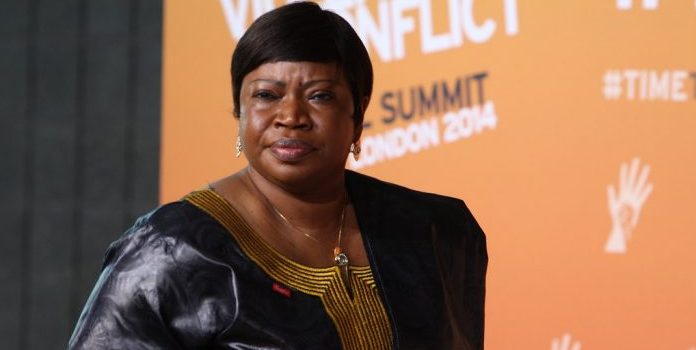(Associated Press) The Trump administration on Wednesday imposed sanctions on the chief prosecutor of the International Criminal Court and one of her top aides for continuing to investigate war crimes allegations against Americans.
Secretary of State Mike Pompeo announced the moves as part of the administration’s pushback against the tribunal, based in The Hague, for investigations into the United States and its allies.
The sanctions include a freeze on assets held in the U.S. or subject to U.S. law and target prosecutor Fatou Bensouda and the court’s head of jurisdiction, Phakiso Mochochoko.
He said the court, to which the United States has never been a party, was “a thoroughly broken and corrupt institution.”
“We will not tolerate its illegitimate attempts to subject Americans to its jurisdiction,” Pompeo told reporters at a State Department news conference.
In addition to the sanctions imposed on Bensouda and Mochochoko, Pompeo said people who provide them with “material support” in investigating Americans could also face U.S. penalties.
Pompeo had previously imposed a travel ban on Bensouda and other tribunal employees because of its investigation into allegations of torture and other crimes by Americans in Afghanistan.
“The United States will not tolerate political attacks against its servicemembers by the ICC, a court which has no jurisdiction over Americans,” said Sen. Tom Cotton, a Republican from Arkansas. “By sanctioning prosecutor Bensouda, the administration is defending American sovereignty and ensuring the safety and security of our citizens.”
Human rights groups and others have condemned the administration’s moves against the court and Wednesday’s announcement was immediately met with withering criticism from them.
Richard Dicker, the international justice director at Human Rights Watch, called it “a stunning perversion of U.S. sanctions, devised to penalize rights abusers and kleptocrats, to persecute those tasked with prosecuting international crimes.”
“The Trump administration has twisted these sanctions to obstruct justice, not only for certain war crimes victims, but for atrocity victims anywhere looking to the International Criminal Court for justice,” he said.
In March 2019, Pompeo ordered the revocation or denial of visas to ICC staff seeking to investigate allegations of war crimes and other abuses by U.S. forces in Afghanistan or elsewhere.
He also said he might revoke the visas of those who seek action against Israel.
Prosecutors have conducted a preliminary inquiry since 2015 in the Palestinian territories, including Israel’s settlement policy, crimes allegedly committed by both sides in the 2014 Gaza conflict and Hamas rocket attacks aimed at Israeli civilians.
The court was created to hold accountable perpetrators of war crimes and crimes against humanity in cases where adequate judicial systems were not available.
The U.S. has not joined the ICC because of concerns the court might be used for politically motivated prosecutions of American troops and officials.
Subsequent U.S. administrations have reiterated that stance, although some, including President Barack Obama’s, have agreed to limited cooperation with court.
The Trump administration, however, has been openly hostile to the tribunal and lashed out against Bensouda along with others for pursuing prosecutions of Americans.

